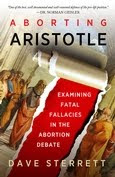 Here is a list of some of the presuppositions of science: (1) the existence of a theory-independent, external world; (2) the orderly nature of the external world; (3) the knowability of the external world; (4) the existence of truth; (5) the laws of logic; (6) the reliability of our cognitive and sensory faculties to serve as truth gatherers and as a source of justified true beliefs in our intellectual environment; (7) the adequacy of language to describe the world; (8) the existence of values used in science (e.g., "test theories fairly and report test results honestly"); (9) the uniformity of nature and induction; (10) the existence of numbers.1
Here is a list of some of the presuppositions of science: (1) the existence of a theory-independent, external world; (2) the orderly nature of the external world; (3) the knowability of the external world; (4) the existence of truth; (5) the laws of logic; (6) the reliability of our cognitive and sensory faculties to serve as truth gatherers and as a source of justified true beliefs in our intellectual environment; (7) the adequacy of language to describe the world; (8) the existence of values used in science (e.g., "test theories fairly and report test results honestly"); (9) the uniformity of nature and induction; (10) the existence of numbers.1
1. William Lane Craig & J.P. Moreland, Philosophical Foundations for a Christian Worldview
 (Downers Grove, IL: InterVarsity Press, 2003), pp. 348.
(Downers Grove, IL: InterVarsity Press, 2003), pp. 348.












